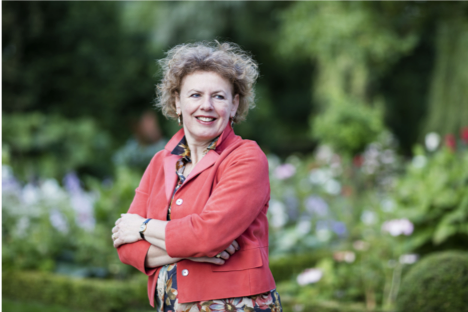
When asked why she serves on supervisory boards, she is quick to answer. Petri Hofste wants to be involved with organizations in a broad strategic way, to have an impact, to make this world slightly better. After a role as supervisor of financial institutions at the Dutch National Bank, serving on supervisory boards was a logical next step. She currently is a member of the supervisory board of Rabobank, insurance cooperative Achmea, Kas Bank, and geodata specialist Fugro. She also serves on the boards of Nyenrode University and the Hendrick de Keyser society for historical buildings.
“Long-term value creation is about connecting to what’s going on around an organization”, says Petri Hofste. “What that means differs per company. Long-term value creation is about essential issues for people and organizations – that’s what makes it so interesting. Supervision isn’t only about signing off on the annual accounts. Maintaining a long-term focus is much more important. Through the vision and mission, how do you ensure the organization remains relevant for its stakeholders? The strategic implementation of that is the responsibility of the executive board. Yet as executives can be caught up in daily issues, there’s a clear role for the supervisory board to ensure the conversation about the future continues.”
Organizational anchoring
“A company needs a broad set of goals, beyond financial ones. In the recent crisis, we witnessed the results of a strong focus on financial results. A broader set of objectives takes into account the perspectives and interests of clients, employees and other stakeholders. Such objectives must be integrated into internal management information systems and mechanisms for control, all the way to the appraisal system. Furthermore, they need to be anchored in external reporting as well, potentially in an integrated report. Ratings and awards like the Dutch Transparency Benchmark and the Crystal Prize support this; they stimulate companies to develop a wider set of KPIs and objectives.”
Internal and external connection
For the companies where she serves on the supervisory board, long term value creation and sustainability take on very different roles. Yet, there is a common theme across them: connection within and outside the organization inspires creativity and innovation for a sustainable future.
Rabobank and Achmea are both cooperatives. As a result of the cooperative business model, there is a much higher level of accountability to different stakeholders. In financial institutions, you can’t just focus on today’s profitability. You have to consider the future in all you do, connected to an environment that is ever-changing due to digitalization, regulation, and innovation from within and outside the sector. Rabobank’s mission “Growing a better world together” fits well with this idea of connection.”
Focus on innovation
“The crisis in the oil and gas sector hit Geodata specialist Fugro quite hard. By focusing on the long term, we came out of this crisis stronger than ever before. Due to innovation and diversification, Fugro is now able to serve clients in other sectors, like wind energy parks.”
At Nyenrode University, there are many sustainability initiatives. This fits with the university’s values of leadership, entrepreneurship, and stewardship. Petri Hofste: “After the strategy update process currently underway, I expect sustainability will take a more central place in our vision for the future and in the strategy. That will not be limited to maintaining the castle and the grounds more sustainably. It will be all about deep integration of the topic into all educational and research programs.”
On the agenda
Due to the update of the Dutch Corporate Governance Code in 2016, there is more attention and publicity for the topic of long-term value creation. “This leads to different conversations in the boardroom and in educational programs for supervisory board members. The Governance Code also supports dialogue between the executive and supervisory boards on this topic.
It’s certainly good to have a sustainability champion in the supervisory board. Yet, the entire board needs to stay connected to what is going on in society, and how that influences what the company should stand for and move towards. To create and maintain that connection, diversity in the board is key.”
.
Are you ready to integrate sustainability, societal impact and long-term value creation into your supervisory board role? Join one of the upcoming courses I will teach in the Netherlands or order the handbook I co-authored on the topic (both in Dutch). Not able to attend these workshops or read Dutch, get in touch.
Written by Marjolein Baghuis (@mbaghuis) for the Change in Context blog and the Erkende Toezichthouder website. To read about interesting people, book reviews and other posts about sustainability, change, and communications please subscribe to this blog in the right-hand column.
